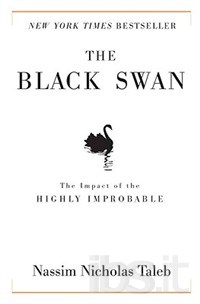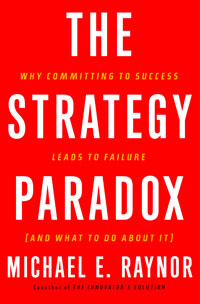
Finance is the study and discipline of money, currency and capital assets. It is related with, but not synonymous with economics, the study of production, distribution, and consumption of money, assets, goods and services. Finance activities take place in financial systems at various scopes, thus the field can be roughly divided into personal, corporate, and public finance. In a financial system, assets are bought, sold, or traded as financial instruments, such as currencies, loans, bonds, shares, stocks, options, futures, etc. Assets can also be banked, invested, and insured to maximize value and minimize loss. In practice, risks are always present in any financial action and entities.
Strategy is a general plan to achieve one or more long-term or overall goals under conditions of uncertainty. In the sense of the "art of the general", which included several subsets of skills including military tactics, siegecraft, logistics etc., the term came into use in the 6th century C.E. in Eastern Roman terminology, and was translated into Western vernacular languages only in the 18th century. From then until the 20th century, the word "strategy" came to denote "a comprehensive way to try to pursue political ends, including the threat or actual use of force, in a dialectic of wills" in a military conflict, in which both adversaries interact.
Real options valuation, also often termed real options analysis, applies option valuation techniques to capital budgeting decisions. A real option itself, is the right—but not the obligation—to undertake certain business initiatives, such as deferring, abandoning, expanding, staging, or contracting a capital investment project. For example, real options valuation could examine the opportunity to invest in the expansion of a firm's factory and the alternative option to sell the factory.
In the field of management, strategic management involves the formulation and implementation of the major goals and initiatives taken by an organization's managers on behalf of stakeholders, based on consideration of resources and an assessment of the internal and external environments in which the organization operates. Strategic management provides overall direction to an enterprise and involves specifying the organization's objectives, developing policies and plans to achieve those objectives, and then allocating resources to implement the plans. Academics and practicing managers have developed numerous models and frameworks to assist in strategic decision-making in the context of complex environments and competitive dynamics. Strategic management is not static in nature; the models can include a feedback loop to monitor execution and to inform the next round of planning.
Scenario planning, scenario thinking, scenario analysis, scenario prediction and the scenario method all describe a strategic planning method that some organizations use to make flexible long-term plans. It is in large part an adaptation and generalization of classic methods used by military intelligence.

Nassim Nicholas Taleb is a Lebanese-American essayist, mathematical statistician, former option trader, risk analyst, and aphorist whose work concerns problems of randomness, probability, and uncertainty. The Sunday Times called his 2007 book The Black Swan one of the 12 most influential books since World War II.
Project portfolio management (PPM) is the centralized management of the processes, methods, and technologies used by project managers and project management offices (PMOs) to analyze and collectively manage current or proposed projects based on numerous key characteristics. The objectives of PPM are to determine the optimal resource mix for delivery and to schedule activities to best achieve an organization’s operational and financial goals, while honouring constraints imposed by customers, strategic objectives, or external real-world factors. Standards for Portfolio Management include Project Management Institute's framework for project portfolio management, Management of Portfolios by Office of Government Commerce and the PfM² Portfolio Management Methodology by the PM² Foundation.

Emanuel Derman is a South African-born academic, businessman and writer. He is best known as a quantitative analyst, and author of the book My Life as a Quant: Reflections on Physics and Finance.

Blue Ocean Strategy is a book published in 2004 written by W. Chan Kim and Renée Mauborgne, professors at INSEAD, and the name of the marketing theory detailed on the book.
Lawrence D. Hite is a hedge fund manager who, along with Ed Seykota, is one of the forefathers of system trading. He is the author of the book, The Rule: How I Beat the Odds in the Markets and in Life—and How You Can Too, which was named a Wall Street Journal, LA Times, and Porchlight Books bestseller.

The Black Swan: The Impact of the Highly Improbable is a 2007 book by author and former options trader Nassim Nicholas Taleb. The book focuses on the extreme impact of rare and unpredictable outlier events—and the human tendency to find simplistic explanations for these events, retrospectively. Taleb calls this the Black Swan theory.
Michael E. Raynor is a Canadian writer, director at Deloitte Services LP, and an expert on business management practices.

Max McKeown is an English writer, consultant, and researcher specialising in innovation strategy, leadership and culture. He has written six influential books and conducts research with Warwick Business School. He is a fellow of the RSA. He served on the advisory board for the Rollins Center for eBusiness. He earned his master's degree in Business Administration and PhD from the Warwick Business School under the supervision of Professor David Wilson and Professor Sotirios Paroutis, who was in turn supervised by Andrew Pettigrew.

The Fat Tail: The Power of Political Knowledge for Strategic Investing is a book by political scientists Ian Bremmer and Preston Keat. Bremmer and Keat are President and Research Director, respectively, of Eurasia Group, a global political risk consultancy.

Michael W. Covel is a bestselling author, entrepreneur, and film director. In 1996, he co-founded TurtleTrader.com, later expanded into TrendFollowing.com, a popular online resource focused on investment style known as trend following, which allows investors to profit in both up and down markets.
An enterprise planning system covers the methods of planning for the internal and external factors that affect an enterprise.

Lynda Gratton a British organizational theorist, consultant, and Professor of Management Practice at London Business School and the founder of HSM Advisory, known for her work on organisational behaviour.
Erika Andersen is an American author and the founding partner of the consulting firm, Proteus. Erika is an international speaker and has been featured in business publications including The Harvard Business Review, The Wall Street Journal, The New York Times, Fortune, and Investor's Business Daily.
Strategic control is the process used by organizations to control the formation and execution of strategic plans; it is a specialised form of management control, and differs from other forms of management control in respects of its need to handle uncertainty and ambiguity at various points in the control process.
Strategic planning and uncertainty intertwine in a realistic framework where companies and organizations are bounded to develop and compete in a world dominated by complexity, ambiguity, and uncertainty in which unpredictable, unstoppable and, sometimes, meaningless circumstances may have a direct impact on the expected outcomes. In this scenario, formal planning systems are criticized by a number of academics, who argue that conventional methods, based on classic analytical tools, fail to shape a strategy that can adjust to the changing market and enhance the competitiveness of each business unit, which is the basic principle of a competitive business strategy. Strategy planning systems are supposed to produce the best approaches to concretize long term objectives. However, since strategy deals with the upcoming future, the strategic context of an organization will always be uncertain, therefore the first choice an organisation has to make is when to act; acting now or when the uncertainty has been resolved.









